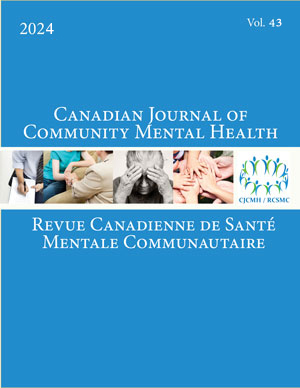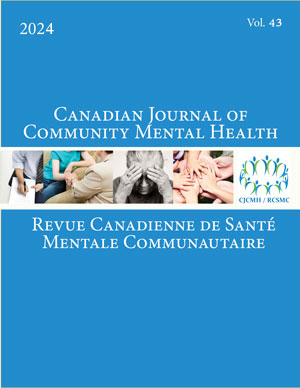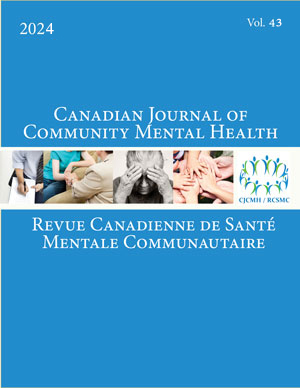Volume 21 • Number 2 • September 2002
OPEN ACCESS
OPEN ACCESS
OPEN ACCESS
The concept of recovery and recovery-oriented services and practices are well advanced in some parts of the world, particularly in the US and New Zealand. This paper provides a review of the literature upon which the hope for recovery is based, and explores this concept in the UK context, where it is now gaining recognition. In so doing, it identifies the background to the development of a consciousness of a possibility of recovery (both with and without mental health services support) and addresses the issues raised by the self-fulfilling concept of chronicity. It further examines the questions of measuring recovery and understanding recovery as a process or goal. It then goes on to identify themes within recovery literature and research, and to focus on recovery skills and self-care strategies for people diagnosed with schizo-phrenia, psychoses, or other serious mental illnesses. The paper concludes by addressing issues that have implications for more effective policy and practice—most notably resolving the fundamental tension between involvement with and separation from services (a process which will require a better under-standing of the role of values in the relationship between those who use and those who provide services).
OPEN ACCESS
This paper provides an outline of the delivery of mental health care in Australia and the development of a National Mental Health Strategy, which set the agenda for mental health reform including a national transition to community-based care through an integrated health system. A key achievement in this reform process was the establishment of an independent national mental health body representative of the sector and community views, and which has direct access at national decision-making level. An overview of the development, structure, and significant activities of the Mental Health Council of Australia is provided, such as processes for influencing national policy, management of national projects, and representative activities. A core ingredient to the success of the Council has been through the establishment of committed partnerships between all key stakeholders in promoting the mental health of all Australians.
OPEN ACCESS
A number of important reforms are under way in contemporary U.S. mental health policy making. Innovations are occurring in such areas as parity for insurance coverage for mental health problems, children's mental health services, and the expansion of community support systems for individuals with severe and chronic mental illnesses. In each case, however, the scope and effectiveness of policy changes are limited by resource shortages, political ambivalence, and program structures that are decentralized, fragmented, and poorly co-ordinated. Thus, although innovation is a valuable engine of change in mental health systems, its impact depends largely on longstanding political, economic, and organizational forces that transcend the mental health sphere.
OPEN ACCESS
Mental health services in the Baltic States of Estonia, Latvia, and Lithuania are in transition from highly institutional to community-focused systems of care. Despite a shared history, the three countries are reforming their service infrastructures at different rates and with different areas of focus. Working in partnership with consumers, families, and national and local administrators, the Community Support and Research Unit of the Toronto-based Centre for Addiction and Mental Health has provided varied technical assistance to support the building of a community mental health infrastructure in all three countries. In Canada, mental health reform efforts are supported by a broad constituency; in the Baltic countries, however, community-focused service innovations and systems-level reform are advanced by a few motivated individuals (local change agents). Nonetheless, in comparison to the decades-long development of community-focused services in Canada, countries such as Estonia have reformed quickly.
OPEN ACCESS
This article reports on a psychosocial rehabilitation approach which is used by Bethel House in Urakawa, a town in the Hidaka district of northern Japan. This approach is unique in that its primary focus is community development, as opposed to therapeutic work. By starting its own businesses, the Bethel community has: (a) created many employment opportunities for people with mental illness and for members of the larger community; (b) brought about important changes in the attitudes of members of the community, and the hospital staff, towards the mentally ill; (c) improved the relationships among members of Bethel and the Urakawa community; and (d) significantly enhanced the town economy. Bethel success clearly illustrates a broader potential for creative approaches to psychosocial rehabilitation and community development.
OPEN ACCESS
In this paper I question some of the ideas behind mainstream psychological help provided and advocated by the American Counseling Association in situations that can be best described as life threatening. I contrast Post-traumatic Stress Disorder treatment with what I propose as the help philosophical counsellors can offer in crisis situations. I present an elementary description of the relatively new profession of Philosophical Practice, or Philosophical Counselling, and provide examples—taken from my philosophical practice in Israel, from philosophical theory, and from philosophers' autobiographies—that give legitimacy to the claims of philosophical practitioners.
OPEN ACCESS
Gender differences in dually diagnosed populations with regard to clinical characteristics and treatment issues suggest that single gender programs for women in particular may be warranted. This article describes an innovative approach taken in the treatment of women with dual diagnoses, a traditionally underserved and unempowered population. The Harborview Mental Health Services Women's Dual Diagnosis Program incorporated empirically based treatments such as cognitive behavioral therapy for dual disorders, dialectical behavior therapy and contingency management into a comprehensive, integrated dual diagnosis program. Preliminary data indicate that this approach has excellent effectiveness in areas such as psychiatric hospitalization, sobriety, productivity, and housing.
OPEN ACCESS
More than 20 million persons in India need some kind of mental health services. The divide between the demand and the resources available is huge, leaving major parts of the country totally devoid of any mental health services. During the last few decades, there has been a growing interest in undertaking community mental health initiatives in India; nonetheless, such initiatives have been largely isolated efforts. This article presents a general overview of India's mental health scene and discusses the many issues related to community care in the Indian context. It then describes the experience of the Schizophrenia Research Foundation (SCARF) in implementing community mental health programs based upon the Community-Based Rehabilitation Model in both rural and urban settings.
OPEN ACCESS
L'association St. Camille de Lellis, une association caritative catholique, intervient auprès des personnes ayant des problèmes de santé mentale en Côte d'Ivoire. Le travail remarquable de cette association, dont le caractère novateur a été reconnu par l'Organisation mondiale de la santé dans un récent rapport, se situe dans un contexte sociopolitique et culturel bien spécifique où la solidarité voisine le rejet. Nous présentons ce contexte, puis nous montrons en quoi la démarche de l'association ouvre la voie à des solutions nouvelles tant pour les pays en développement que pour les pays industrialisés. Nous présentons ainsi quelques éléments d'informations et d'analyse quant à la « folie africaine », puis il est question des politiques et services sanitaires en Afrique, continent où la pénurie chronique de ressources financières et matérielles a un impact majeur sur les populations. Pour les fins de la description de l'action de l'association St. Camille, nous avons retenu 3 pratiques que nous considérons particulièrement « Porteuses »: la prise en charge par les personnes elles-mêmes de leur devenir, la protection des droits de ces personnes et la mise sur pied d'entreprises sociales. Adoptant aussi un point de vue critique sur l'expérience de l'association, nous discutons les obstacles à la reproduction de l'expérience, les conséquences thérapeutiques et psychosociales de certaines pratiques, ainsi que la question du financements.
OPEN ACCESS
The Association St. Camille de Lellis, a Catholic charitable association, serves people with mental health problems in Côte d'Ivoire. The remarkable work of the association, whose innovative character was recognized by the World Health Organization in a recent report, is situated in a particular socio-political and cultural context that combines solidarity and rejection. We describe this context, then we show how the association's activities open the way to new solutions for both developing and industrialized countries. We then present some information and analysis regarding “African madness,” and go on to consider the nature of mental health policies and services in a continent where chronic shortages of financial and material resources have a major impact on African populations. We found 3 of the Association St. Camille de Lellis's practices especially promising: people taking control of their futures, the protection of people's rights, and the establishment of social enterprises. At the same time, we also retain a critical point of view regarding the Association's experience, and we examine the obstacles to replication of this experience in other sites, the therapeutic and psycho-social consequences of some of its practices, and issues regarding financing.










